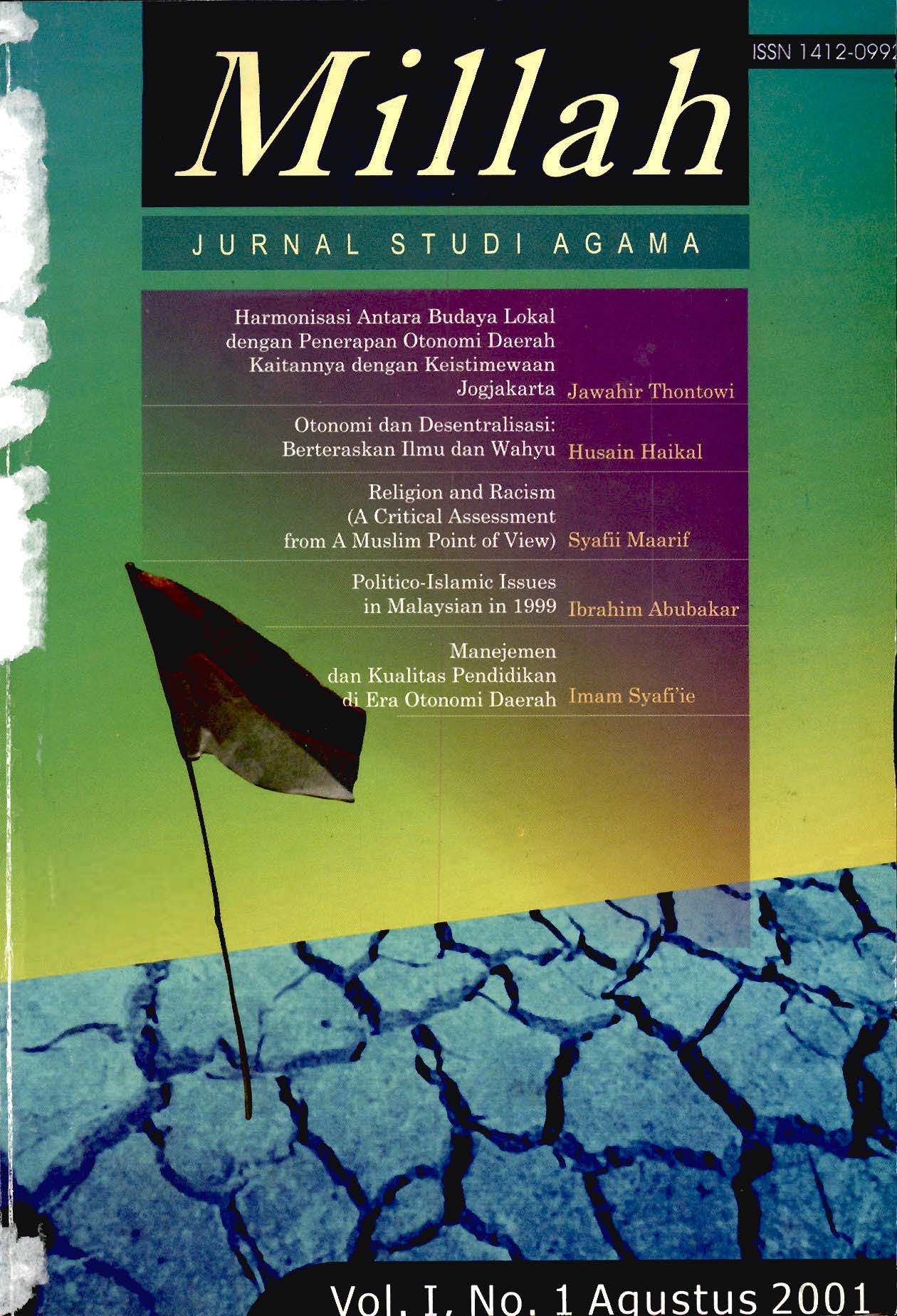Main Article Content
Abstract
Entering the third millenium, the Indonesian government is carrying out autonomy and decentralization programs. The aim of these sudden programs is creating more realistic and just situation. However, the situations are getting worse as ethnic cleansing, misused of power, and separatist movements are becoming daily realities. This is due to the fact that since the fifties the Indonesian central government gradually pays little attention to the education and health programs. Moreover, the central government has no serious attempts to create the real middle class and private sectors in addition to carrying the rule of the law. Through this limited available space, this article tries to highlight the first core for the successful autonomy and decentralization by providing good education, based upon science and revelation, for the Indonesians as a whole, especially for the young generation.
Article Details
Copyright (c) 2016 Millah: Jurnal Studi Agama

This work is licensed under a Creative Commons Attribution-ShareAlike 4.0 International License.
Authors retain copyright and grant the journal right of first publication with the work simultaneously licensed under a Creative Commons Attribution (CC-BY-SA) 4.0 License that allows others to share the work with an acknowledgment of the work’s authorship and initial publication in this journal.




